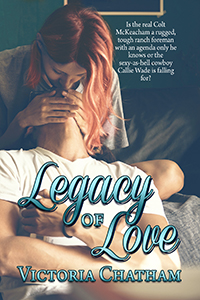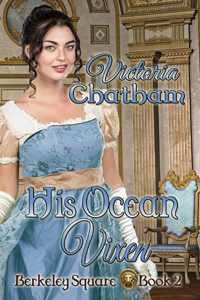Visit Paula Martin's BWL Author page to purchase her novel
A Family’s Secrets
Follow Your Heart Book 1
Paula Martin
An Excerpt
Part 1 Liverpool,
1844
Chapter 1
Betsy Roberts shivered and pulled her black woollen shawl tighter around her shoulders. She didn’t dare to run for fear of slipping on the icy cobbles, and glanced around apprehensively after passing the dim streetlamp near the pawn shop.
Earlier in the evening, the dark street,
with its long terrace of grimy houses, would have been thronged with dock
labourers and shipyard workers. Now it was deserted. Everyone had rushed home
or to one of the ale houses to escape the bitter cold of this January evening.
She breathed a sigh of relief when the
faint light from the window of Dottie Hughes’ corner shop provided a welcome
break in the darkness. A second later, someone lunged at her from the narrow
alleyway leading to the overcrowded and squalid Myrtle Court.
Alarm jolted though her as he grabbed her
arms, held them in a vice-tight grip, and yanked her against him. He reeked of
beer and sweat, and she struggled to free herself.
‘Aww, come on,’ he growled.
Fright gave way to terror, and she forced
her hands up to his shoulders, pushing with all her strength. ‘No! Let go of
me!’
Twisting her head from side to side, she
searched for an escape from the slobbering mouth trying to kiss her. Her scream
came out as a croak, and the man continued to thrust against her.
‘Oh, dear God, no,’ she whimpered.
Confused memories raced through her
mind…six months ago…Mary Ann Stanley…dragged into Rigby Court…raped and
strangled.
Despite being rigid with fear, she summoned
up enough strength to call out, ‘Help! Help! Someone – please help—’
A man’s voice, calm and authoritative, broke
into her panic: ‘Let the lady go, Charlie. Charlie,
let her go!’
She almost fell backwards when her rescuer
hauled the man away from her. One of his hands grasped her arm to stop her from
falling; his other hand held her assailant by the collar of his scruffy jacket.
‘Go home, Charlie. Go home to yer mam now,
there’s a good lad.’ The man shoved Charlie in the direction of the narrow
alley between the tall houses, waited until he staggered off into the darkness,
and said, ‘Did he hurt you, miss?’
‘No, but he–he scared me.’ Betsy hastened
to straighten her felt bonnet which had been knocked askew in the struggle and
dragged her shawl around her shoulders again. Her heart thumped against her
ribs, and the man still held her arm, but she managed to bob a small curtsey.
‘Thank you, sir. I’m ever so grateful to you.’
‘What’s goin’ on out here?’
Betsy turned at the sound of a woman’s
voice. Dottie Hughes stood in the doorway of her shop, her arms folded across her
bosom.
‘It was Charlie Moore, Mam,’ her rescuer
said. ‘He was drunk again and scaring this young lady out of her wits.’ He
looked down at her. ‘Come inside the shop to compose yourself, miss.’
‘I-I don’t want to be any trouble.’
‘No trouble at all. Besides, you’re
shaking.’
Betsy realised her trembling legs wouldn’t
carry her more than a couple of steps once the man released his hold on her
arm. ‘Th-thank you. I would like to sit down for a few minutes. If it’s
convenient, I mean.’
‘Mam, put the kettle on,’ he called. ‘The
young lady needs a good strong cuppa to help her recover.’
She let him lead her into the shop, sank
down on the wooden chair next to the counter, and gripped the sides of the seat
tightly in an effort to stop shaking. Dottie disappeared through the curtained
doorway behind the counter, and after the man closed the shop door, she had her
first proper look at him in the flickering light from the wall-mounted oil
lamps.
Since he’d called Dottie ‘Mam’, he was
obviously one of her two sons.
‘Both of them mariners,’ Dottie always said
proudly. ‘They get their love of the sea from my pa. Sailed all over the world,
he did.’
This son was tall, and nearer to thirty
than twenty, she guessed. He was clean-shaven apart from dark side-whiskers
which reached to about an inch below his earlobes, and he wore a navy-blue
jacket with two rows of brass buttons, and a loosely knotted white cravat. When
he removed his woollen peaked cap and dropped it on the counter, his thick,
wavy hair fell forward, half covering his broad forehead.
Her stomach performed a weird kind of
contraction as she studied his handsome features, and an even weirder jerk when
he gave her a reassuring smile.
‘I hope you’re recovering from your fright,
Miss—uh?’
‘Roberts. Elizabeth Roberts – but everyone
calls me Betsy.’
The man inclined his head. ‘And I’m John
Hughes. I’m pleased to make your acquaintance, Miss Roberts, despite the – uh,
unfortunate circumstances.’
Her trembling eased now she was in the
safety of Dottie’s well-stocked grocery store, and she ventured a question.
‘That man – Charlie – do you know him?’
‘I’ve known him since we were children.
He’s a couple of years younger than me, and despite how it must have appeared,
he’s quite harmless. Just a bit simple in the head, if you understand me.’
‘Yes, but he—’ Betsy stopped when the heat
rose to her cheeks. Modesty prevented her from finding the words to describe
his crude actions.
John nodded, and she was grateful for his
recognition of her embarrassment. ‘Charlie has no understanding of the rules of
acceptable behaviour,’ he said, ‘and, unfortunately, less so when he’s drunk
too much ale. He is – how can I explain it? – he’s like a child in a man’s
body.’
‘I blame Tom Murphy,’ grunted Dottie as she
returned to the shop.
Her buxom figure was encased in a black
crepe dress, even though she’d been a widow for well over five years, and she
had a round, motherly face beneath a white lace cap. Her son, Betsy decided,
must take after his father, since his face was longer, with a well-defined chin
and jawline.
Dottie carried a tray with a teapot, cups,
jug, and sugar bowl, and placed it on the counter. ‘Tom should have more sense
than to serve him more than two pints, but of course he doesn’t care so long as
Charlie’s got the money to pay for them.’
‘Especially on a Saturday evening when he
knows Charlie has his week’s wages in his pocket,’ John added.
Dottie huffed as she poured tea into the
cups. ‘I don’t know how his mam copes with him, I really don’t. Anyhow, do you
like milk and sugar with your tea, Betsy?’
Betsy nodded. ‘Just milk, please.’
John’s eyes widened. ‘Are you acquainted
with Miss Roberts, Mam?’
‘’Course I am. She and her friend Jane
often pop in here on their way home from work.’ Dottie frowned. ‘Ye’re very
late tonight, Betsy.’
‘I stayed to finish an urgent order, a silk
blouse for Lady Molyneux, but it took longer than I expected because of all the
frills around the cuffs.’ She smiled as Dottie handed a cup of tea to her.
‘Thank you.’
‘You make sure you get paid for yer
overtime then.’ Dottie passed another cup to her son and tutted as she shook
her head. ‘You shouldn’t be expected to walk home alone at this time, neither.
It’s nearly ten o’clock.’
Betsy sipped the strong, hot tea. ‘I was
more scared of slipping on the ice than being – um – accosted. That’s never
happened before. The men drinking outside Murphy’s Bar sometimes yell bawdy
things, but Jane and I just laugh and tell them to shut up.’
‘Where’s Jane tonight?’ Dottie asked.
‘She offered to stay late to help, but Miss
Latham said she wanted me to finish the blouse because – well, because Jane
tends to rush things and make mistakes.’
John raised his eyebrows. ‘Honora Latham?
The old dragon?’
Betsy stifled a giggle. ‘That’s what we
sometimes call her. In private, of course.’ She took another sip of her tea
before quickly defending her employer. ‘But she’s trained me well, and I’d
rather work as a seamstress than a scullery maid like our Annie. It’d drive me
mad, scrubbing kitchen floors and tables all day long for a bad-tempered cook.’
John tilted his head as he studied her. ‘Does
Miss Latham treat you well, Miss Roberts? I believe she is extremely strict
with her workers.’
Betsy looked directly at him. ‘She has high
standards, Mr. Hughes, but I have no quarrel with that, because so have I.’
‘And are you a good seamstress?’
She held his gaze steadily, despite her
uncertainty about the expression in his dark eyes. Was he mocking her? ‘I do my
best, and I think I am, sir.’
‘’Course she is,’ Dottie said, ‘else why would
Miss Lah-di-dah Latham ask her to stitch a blouse for Her Ladyship?’
John drank some more of his tea before
saying, ‘Do you take orders?’
‘Orders?’ Betsy frowned. ‘What do you
mean?’
‘I mean, are your stitching skills limited
to Miss Latham’s workshop, or do you make clothes in your own time? Dresses and
so on?’
‘I’ve made dresses for myself and my
sisters, and I buy jackets, shirts, and trousers from the rag man and alter
them to fit my brothers.’ After gulping the last mouthful of her tea, she put
the cup back on the saucer. ‘Anyhow, I’ve taken up enough of your time, Dottie,
but thank you for the tea. And thank you for rescuing me, Mr. Hughes. I must go
home now. Mam will be worried about me being so late.’
As she stood, John reached for his cap.
‘Allow me to escort you, Miss Roberts.’
‘Oh!’ Her heart fluttered with unexpected
excitement. In the next second, she told herself he was only being gentlemanly,
and shook her head. ‘Thank you, but that really isn’t necessary. I’m sure I
won’t have any further problems.’
‘I insist,’ he said, in a tone which
brooked no argument. Pushing back his hair from his forehead, he fixed his cap
on his head, held open the shop door for her, and turned to his mother. ‘I’ll
probably be back in Liverpool on Wednesday morning, Mam. Depends on the
weather, of course.’
Dottie nodded. ‘Aye. Take care, son.’
When they stepped into the street, Betsy
knew her inner trembling wasn’t due to the icy weather or her earlier fright.
It was caused solely by the tall figure, who moved protectively to her
right-hand side when the night-soil man’s horse and cart rumbled past them.
Holding her breath against the stench until the cart continued further along
the street, it occurred to her that Ned Tanner would never think to shield her
from any passing cart when she walked out with him. But Ned was just a timber
yard labourer, not a gentleman like John Hughes.
It took a minute or so before her eyes adjusted
to the darkness, during which neither of them spoke. Feeling stupidly
tongue-tied, she racked her brain for something sensible to say.
‘Are you sailing—?’
‘Where do you—?’
They both started at the same time, but as
Betsy glanced around, intending to apologise and let John ask his question
first, the sole of her boot skidded on a patch of ice. Involuntarily, she
gripped the side of his jacket. Her sudden movement caused him to slip too. He
flailed his arms wildly and shot one arm around her back, dragging at her shawl
as he fought to recover his balance.
Once they regained their equilibrium, Betsy
couldn’t stop herself from dissolving into giggles when she realised how comical
they must both have appeared. ‘It’s very slippy, isn’t it, Mr. Hughes?’
A deep guffaw broke from him, and for a few
moments they faced each other, both shaking with laughter. Despite the freezing
air which condensed their breaths into clouds, a hot flame raced through
Betsy’s veins.
Eventually, John coughed to control
himself, but smiled as he tilted his head in acknowledgement. ‘Miss Roberts, I
applaud you for your profound statement. You’re correct, it is very slippy, so unless we both want
to end up sprawling inelegantly on the road, I suggest—’ He raised her arm to
link it through his. ‘I suggest we offer each other some mutual support.’
Betsy’s heart danced as he held her close
to him, and they continued carefully across Frederick Street toward the dye
factory.
‘I think, before our recent antics on the
ice, I was about to ask where you live,’ John said.
‘In Manor Street, near the timber yard.’
‘I know it. And what was your question?’
‘My question?’ Walking arm-in-arm with him
was befuddling her brain, and she struggled to remember. ‘Oh yes, I was going
to ask whether you were sailing tonight.’
‘No, but I have to supervise a delivery of
coal at six in the morning, so I’ll spend the night at my lodging house. It’s
less than three minutes’ walk from the Prince’s Dock where Mona’s Isle is moored.’
‘Mona’s
Isle? The Isle of Man boat?’
‘Yes, indeed. A fast and handsome vessel,
and the first of the company’s ships to be awarded the Royal Mail Warrant.’
‘Have you always worked for the Isle of Man
Steam Packet Company?’ she ventured.
‘I’ve been with them for about six years.’
She wanted to ask him more, but after
passing the dye factory, they turned into Barlow Street where Ned Tanner lived,
and she tensed. Ned’s grandmother, old Ma Tanner, usually sat by the front
window – and she was renowned for being a gossip. What if she saw Betsy with a
strange man? It would be all over the neighbourhood by tomorrow, and then what
would Ned say?
Come to think of it, why was she walking arm-in-arm with John Hughes?
She’d only met him about an hour ago. Nineteen-year-old girls didn’t walk out
with complete strangers. At least, not girls like her, who’d been brought up to
protect their reputations.
Yet, strangely, she felt so comfortable, so
relaxed – so right, somehow.
‘Speaking of the Isle of Man, I have a
favour to ask you.’
John’s voice diverted her from the problem
of Ned and his grandmother, and she raised her eyebrows. ‘A favour?’
‘Do you recall me asking if you took orders
for your sewing?’
‘Yes, but I’ve only made clothes for my
family and sometimes for friends. However, I’m sure Miss Latham would be only
too pleased to—’
John waved his free hand dismissively. ‘I’m
not interested in the likes of Honora Latham, who pays her workers a pittance
and keeps the rest for herself. I’ll wager Lady Molyneux is paying her
considerably more than you’ll earn for stitching her blouse. But, to come to
the point, I have a friend – a lady in Douglas Town – who has been badly let
down by two dressmakers on the island, and is seeking a seamstress here in
Liverpool. Would you be interested? She is willing to pay well for quality
work.’
Betsy blinked several times as her mind
raced. Occasionally, she’d dreamed the impossible dream of having her own
clientele, like Miss Latham had, and of designing and making silk and satin
dresses for those rich enough to afford them. It would be so tempting to agree
to John’s request, but her practical instinct surfaced.
‘I would be interested, but—’ she gave him
a wry smile ‘—I’m not sure how I would make a dress for someone who lives on an
island in the middle of the Irish Sea. You see, Miss Latham insists on
measuring her clients very carefully to ensure the best possible fit for their
garments.’
John chuckled. ‘I doubt Eleanor would appreciate
me offering to take her measurements, but she did anticipate the problem of
employing a dressmaker in Liverpool rather than one at home. Her suggestion was
to send one of her dresses, one whose fit she is happy with. Would that help?’
As they passed the Tanner house, Betsy kept
her face turned to John in the hope that anyone looking through the window
wouldn’t recognise her.
‘Yes, it would be useful, but won’t your
friend want to see an example of my work before she trusts me with an order?’
‘My dear Miss Roberts, once I tell her you
have made a garment for Lady Isabella Molyneux, she will trust you implicitly.
In fact, I can almost hear her now, boasting to all her friends that her new
seamstress works for the aristocracy.’
Betsy laughed. ‘I think that might be a
slight exaggeration.’
‘It will make her happy.’
When they reached the corner of Manor
Street, she halted. Although unwilling to end this agreeable interlude with
John Hughes, she was reluctant to have him accompany her to the house. Too many
questions would be asked, especially if Pa opened the door and realised John
was a mariner. He had strongly voiced and usually offensive opinions of the
hordes of sailors who frequented the dockland ale houses and brothels, and had
warned her many times to stay away from them.
She gave John a tentative smile. ‘Thank you
for escorting me, Mr. Hughes, but it’s late, and I’m sure you’ll want to
proceed to your lodging house.’
He glanced past her along the narrow street
and frowned. ‘I’m concerned you might slip again.’
‘I’ll be careful, I assure you.’ She
released her arm from his. ‘If you continue down here past the timber yard, and
turn right, you’ll reach the wharf. Goodnight, Mr. Hughes, and thank you
again.’
‘In that case, I’ll bid you goodnight, Miss
Roberts. It has been a real pleasure to meet you.’
Betsy’s heart raced as she picked her way
cautiously on the icy cobbles. When she reached the front door, she paused
before opening it, and peered toward the end of the street. To her surprise,
she could still see the white of John’s cravat, and a jolt of pleasure shot
through her. He’d waited to ensure she got home safely.
It didn’t mean anything, she told herself
quickly. It was simply what a gentleman did – unlike Ned, who invariably left
her at the end of the street with a casual, ‘Ta-ra, luv. See yer tomorrow,’ and
carried on to his own home.
Regret surged through her. It was unlikely
she’d ever meet John Hughes again, despite his inquiry about her sewing skills.
He was simply making polite conversation. Besides, he’d mentioned a lady friend
in the Isle of Man.
Why, then, did she feel as if he had ignited
something inside her – a small spark of attraction which would be difficult to
extinguish?
Chapter 2
Betsy lay awake for what seemed like hours that night. Countless times she let herself recall every minute of her encounter with John Hughes. Small tremors skittered through her as she recalled the pressure of his hand on her arm when he rescued her, the intense gaze in his dark eyes in the shop, and their shared laughter after they slipped on the ice. Even more indelibly etched in her memory was the walk home, with her arm linked through his, and her heart racing at the warmth from his body and the attractive timbre of his deep voice.
No matter how often she told herself he had
probably not given her another thought, she clung to the hope that his interest
in her sewing skills might lead to another meeting with him. He’d told his
mother he would be back in Liverpool on Wednesday – so should she call into
Dottie’s shop to see if he had left any message for her about his friend’s
dress? Or would that seem impertinent? She didn’t want him – or his mother,
either – to think she was too forward.
The dilemma continued to occupy her mind.
On Sunday morning, snow fell from leaden skies for a couple of hours and settled in a white blanket. Only about two inches, but enough to soften the harshness of the soot-blackened streets and houses in this dockland area of the busy port.
Betsy leaned against the frame of the front
door, keeping an eye on three-year-old Martha, who slithered uncertainly in the
snow. Her other young siblings, Will, Sally and Janey ran around the street,
shrieking and laughing as they threw snowballs at each other and at the
neighbours’ children who also came out to play.
Later, Harry, her seventeen-year-old
brother, joined in the fun when Ned Tanner arrived with a rough wooden sled.
They took turns in pulling the excited youngsters to the end of the street and
back, until Betsy called them inside for bowls of potato soup, which her mother
had heated in the cast-iron pot on the range.
Ned slurped his soup noisily and grinned at
her. ‘Want a walk in the park this afternoon, Bet? I reckon it’ll look real
pretty in this snow.’
Relieved that his grandmother hadn’t seen
her with John the previous evening, otherwise Ned would have demanded who, what
and why, Betsy gave an apologetic shrug. ‘Sorry, Ned, but I’ll be needed to
help with washing and drying clothes. Sally and Janey were soaked to the skin
after their snowball fights, and Will has split his pants, so I’ll have to mend
them.’
She was glad she had an excuse. Although
she and Ned sometimes walked to the park or along the river to Dingle beach,
they weren’t officially ‘courting’, whatever the busybody neighbours, including
his grandmother, might think.
She’d known him since they were children;
their mothers had once lived next door to each other, and their fathers worked
as shipwrights at Royden’s yard near the King’s Dock. Eighteen months older than
her, with straight, fair hair and baby blue eyes in a round face, Ned was more
like a brother than a suitor or future husband. She’d told him as much last
summer when he tried to kiss her one evening when they’d been to a band concert
in the newly opened Prince’s Park. After a short period of awkwardness between
them, they resumed their casual friendship, though she suspected Ned still
hoped she might eventually change her mind.
Henry, her pa, made no secret of his
approval. ‘He’s a good lad,’ he once said. ‘Better than those damned sailors
who are here today and gone tomorrow. Mebbe he’s not the sharpest knife in the
box, but he has a steady job at the timber yard. You could do a lot worse,
Betsy.’
Sarah, her mother, had been more
cautionary. ‘You make up your own mind, love. That’s what I should have done,
but my pa – your grandpa Catterall – wouldn’t allow it.’
‘Wouldn’t allow it?’ Betsy asked. ‘What do
you mean?’
Sarah shrugged. ‘Henry wasn’t my choice. He
was the man Pa chose for me.’ When Betsy’s jaw dropped, she went on, ‘Oh, we
rub along all right, even though he can be cantankerous and pig-headed, and you
know yerself how he won’t ever admit to being wrong about anything. But he’s a
skilled carpenter and works hard, I’ll give him that, and he only goes to the
Peacock twice a week with George Tanner, not like those who get drunk every night.
That’s why he can afford the rent for this house, so we don’t have to live in a
cramped room in those courts off Frederick Street, but sometimes I wonder—’
‘Wonder what?’ Betsy prompted when her
mother stopped.
Flustered, Sarah wiped her hands on her apron.
‘Nothing. Forget it. Except – well, best advice I can give you is to listen to
yer heart and pay no mind to what anyone else says.’
Betsy had mulled over her words and hoped
her own heart would give her the right answers when the time came.
* * *
The next morning, the snow had melted into grey slush, and Betsy and her friend Jane Knowles, who lived further along Manor Street, held up their woollen skirts as they stepped carefully over the slimy cobbles and avoided the scum-surfaced puddles on their way to work.
‘Did you finish Her Ladyship’s blouse on
Saturday?’ Jane asked.
‘I did, but you’ll never guess what
happened when I was walking home.’
By the time they reached Miss Latham’s
house, Betsy had given Jane a full account of the Saturday evening’s events,
and Jane’s eyes lit up.
‘You’ve taken a real liking to John Hughes,
haven’t you?’
Betsy blushed. ‘Of course not.’
‘Yes, you have. You go red every time you say
his name.’
‘I do not.’ She gave her friend a sheepish
grin. ‘All right, maybe I do, but it’s not every day a gentleman escorts you
home.’
‘Betsy, he’s a sailor.’
‘But he’s not like those drunken jacks who
hang around outside Murphy’s.’
‘You mean he’s a captain or something?’
‘I didn’t ask him. All I know is he works
for the Isle of Man company.’ With a small grimace, she went on, ‘And you can
stop getting any daft ideas in your head, because he has a lady friend on the
island.’
‘And he asked you about making a dress for
her.’
‘He didn’t suggest meeting again, so I
doubt I’ll hear any more about it.’
Jane thought for a moment. ‘You said he
told his mam he’d be back here on Wednesday, didn’t you? So let’s visit
Dottie’s shop that evening and then you can ask to speak to John.’
Betsy gaped at her. ‘I couldn’t come
straight out with a question like that! It wouldn’t be – ye know, seemly, would
it?’
Jane giggled as she pushed open the front
door of Miss Latham’s three-storey house on Frederick Street. ‘You could say it
was a business matter. No need to tell her you’ve fallen in love with him.’
‘Now you’re being silly. You don’t fall in
love with someone when you’ve only known them for about an hour.’
Betsy was relieved she was behind Jane as
they climbed the steep stairs to the top floor workshop. At least her friend
couldn’t see the tell-tale blush which rose to her cheeks.
* * *
By late afternoon on Wednesday, Betsy was still in a quandary about what she should do. Mona’s Isle had probably returned to Liverpool on the morning tide, but she doubted she could be bold enough to ask Dottie about John. On the other hand, unless he’d been very observant on Saturday evening, he might not remember which house she’d stopped outside. After all, it had been dark, and all the houses in the long terrace looked the same, so how would he be able to contact her again? Always assuming he hadn’t completely forgotten about her, of course.
Miss Latham’s stern voice broke into her
thoughts. ‘Roberts, this stitching is uneven. Unpick it and do it again.’
Betsy’s heart sank when the linen sleeve
was tossed onto the large table around which the six seamstresses sat. The
other girls kept their heads down as she looked up at the steely grey eyes of
her employer with a suitably apologetic expression. ‘Yes, Miss Latham. I’m
sorry, Miss Latham.’
She started to unpick the seam, but as soon
as Miss Latham bent to inspect the work of one of the other seamstresses, Jane
nudged her.
‘Are we going to Dottie’s shop?’ she
mouthed.
Betsy cast a cautious eye at Miss Latham’s
back and shook her head. ‘I don’t know,’ she mouthed back.
She yanked the last piece of thread from
the rejected seam, suppressing a small sigh as she re-pinned it and tried to
concentrate on her sewing.
At seven o’clock, with the seam re-done to
Miss Latham’s satisfaction, Betsy followed Jane down the stairs and into the
dark street.
‘One stitch out of line, and I have to
unpick the whole bloomin’ thing,’ she grumbled.
‘It’s not like you to make mistakes,’ Jane
said and grinned. ‘I’m guessing you were distracted by other matters. Like a
certain mariner returning to Liverpool?’
‘I keep changing my mind about what to do.’
Taking a deep breath, Betsy made a decision. ‘Perhaps we could stop off at Dottie’s, like you suggested. I’ve enough money
for two ounces of tea, so that’s a good enough reason to go into the shop, isn’t
it? And then – well, I might have a chance to say how grateful I was to John
for rescuing me from Charlie Moore. That would be better than asking if he’s
back in Liverpool. What do you think?’
Jane tucked her arm through Betsy’s.
‘Perfect.’
When they approached the dim light from the
window of Dottie’s corner shop, Betsy’s heart quickened. She tried to tell
herself that John was unlikely to be there, but admitted she’d be disappointed
if he wasn’t.
The metal bell above the door clanged as
they entered the shop. Dottie was serving Mrs. Mills, the vicar’s wife, but
looked up from wrapping a wedge of cheese.
‘Ah, it’s you, Betsy,’ she said. ‘I’m glad
you stopped by, because my son has a package for you. John!’ she called over
her shoulder.
Betsy gave Jane a startled glance, while
Dottie handed the cheese wedge to Mrs. Mills. Seconds later, her heart jerked
when a tall figure emerged through the curtained doorway behind the counter.
A begrimed twill apron covered John’s white
shirt which was collarless and open at the neck. His sleeves were rolled up
above his elbows, and the sight of his strong, muscled forearms sent all her
senses spinning.
‘What is it, Mam?’ he said, before his eyes
widened. ‘Oh!’
Hastily, he pulled his leather braces from
his arms up to his shoulders. ‘My apologies, ladies.’ A smile lit up his face.
‘Miss Roberts, I’m more than delighted to see you again.’
Betsy’s cheeks heated, but she let her gaze
meet John’s dark eyes. ‘It’s a pleasure to meet you again too, Mr. Hughes.’
Dottie’s voice interrupted her confused
thoughts. ‘Here’s yer change, Mrs. Mills. I hope you and the Reverend enjoy the
cheese.’
‘I’m sure we will. Thank you, Dottie.’
After Mrs. Mills left the shop, John
grinned at his mother. ‘Sorry, Mam. I didn’t forget my manners, but I doubt the
vicar’s wife would want to soil her glove by shaking my hand.’ He chuckled as
he held up his hands, the palms of which were black, and winked at Betsy. ‘I’ve
been black-leading the fireplace.’
Dottie nodded. ‘Aye, Kitty Nugent, who
cleans for me, never does it properly, and my knees won’t let me do it now,’
she explained to Betsy and Jane, and turned to her son. ‘D’you want me to fetch
the parcel you’ve brought for Betsy, John?’
‘No, no, just give me a minute to wash my
hands.’
After he disappeared through the curtained
doorway, Dottie tilted her head. ‘You may as well go through there, Betsy.’
Betsy raised her eyebrows. ‘Are you sure?’
‘’Course I am. Get along with you. We don’t
stand on no ceremony here.’
‘I’ll wait here and keep Dottie company,’
Jane said.
Her heart pounding against her ribs, Betsy
made her way around the counter and past the curtain into Dottie’s parlour. The
prospect of being alone with John Hughes excited and unnerved her at the same
time.
Chapter 3
Betsy gazed around Dottie’s parlour in awe. It boasted wallpaper with green leaves on a lighter green background – a complete contrast to her own home, where the whitewash paint on bare plaster was stained by smoke from the fireplace. Not that much of Dottie’s wallpaper was visible, since wood-framed paintings of ships, landscapes, and flowers covered most of the walls.
A heavy oak dresser held an impressive
array of china plates and cups, glassware, and even some silverware, and next
to the window was a polished drop-leaf table with an ornate brass oil lamp. Two
armchairs flanked the cast iron fireplace, one covered in dark green velour,
the other in worn brown leather.
The mantelshelf above the fire was
cluttered with polished wood carvings of animals and other strange objects. She
couldn’t move closer to inspect them because of the cotton sheet in front of
the fire with an assortment of cleaning materials: a bucket of water, several
brushes and cloths, and a block of black-lead.
Trying to picture John kneeling there, she
spun around when he said, ‘Oh! Miss Roberts, I didn’t expect—’
She rushed to explain. ‘Your mother said it
was all right for me to come in here.’
‘Yes – yes, of course it is.’
After a momentary silence, she glanced down
at the gleaming grate and smiled. ‘I’m impressed by your cleaning, Mr. Hughes.
My father wouldn’t have the first idea how to black-lead a fireplace.’
John returned her smile as he dried his hands
on a cloth. ‘I’m a mariner, Miss Roberts. We can turn our hands to many things,
from mending a boiler to stitching a torn sail, although I doubt my sewing
skills would match yours. Speaking of which—’
He dropped the cloth on the table and
leaned down behind the leather armchair. Picking up a bulky parcel, wrapped in
waxed brown paper, he balanced it on the top of the chair back. ‘Eleanor says
this contains a dress, a length of material, and other accessories. She
mentioned buttons and braiding, but I forget what else.’
Betsy stared at the parcel while
conflicting thoughts raced through her mind. Her pleasure that John had
remembered mingled with a sense of disquiet about this Eleanor, whoever she
was, but overriding everything was panic. She raised her head to face him as
she voiced her most urgent concern. ‘Does the lady want the dress to be the
same style as the one she has sent?’
‘The dress is simply to give you an idea of
her measurements, and I understand she has enclosed an illustration from a
ladies’ magazine she received from her sister in London. Will that suffice?’
‘I – yes, I think so.’
John smiled. ‘There is no need for anxiety,
Miss Roberts. Eleanor said she would like “something similar”, which I take to
mean she does not require an exact replica of the illustration.’
‘I will study it carefully. Did the lady
say when she requires the garment to be finished?’
‘I explained how you work long hours and
would be making this one in your own time, and she understands that.’ His
eyebrows lifted. ‘How long does it take
to make a dress?’
‘It depends on the style. A simple cotton
dress may take only a day or so at Miss Latham’s, with several of us working on
it. A more elaborate silk dress with frills and decorative stitching will take
longer, of course. Especially in winter.’
‘Winter? Why?’ The furrow on John’s brow
cleared. ‘Ah, because there are fewer hours of daylight?’
‘Yes. I will need to work in the evenings,
and the flickering light from a candle limits how much I can do before my eyes
become tired. Sewing is so much easier in the lighter summer evenings.’
‘I understand, so please don’t feel under
any pressure to complete this dress.’ John hesitated. ‘Now I should offer to
carry this parcel home for you but—’ he glanced down at his grubby apron, and inspected
a black smudge on his shirt sleeve ‘—I need some time to make myself more
presentable.’
‘Please don’t concern yourself on my
account, Mr. Hughes. I’m sure Jane and I can carry the parcel between us.’
As soon as she said the words, she wanted
to kick herself. She’d just talked herself out of having John as an escort
again.
He nodded. ‘I assume Jane is the young lady
who was with you in the shop.’
‘Yes, we live in the same street.’
Was it her imagination or did
disappointment flicker across his face?
She went on quickly, ‘Once I’ve seen the
style of the dress, I’ll be able to give you a better idea of when I can
complete it.’ Realising what she had implied, she corrected herself. ‘I mean, I
can leave a message with your mother.’
‘Yes – yes, indeed, but—’ He studied her
for a long moment, and went on, ‘But I was wondering if – if I may call on
you?’
Betsy’s heart missed a beat and heat
flooded her cheeks. ‘Call on me?’
‘I was – uh – I was thinking – hoping – we
might walk together in the park or along the river next Sunday? If the weather
is suitable, and if you are agreeable, of course.’
Now her heart thumped rapidly. ‘Yes, but—’
‘But?’ he prompted, with a small frown.
She had no alternative but to come straight
out with it. ‘I’m afraid my father has a low regard for sailors.’
To her surprise, John chuckled. ‘He is a
man of sound judgement, Miss Roberts.’
She narrowed her eyes. ‘You disapprove of
your fellow mariners?’
‘Not all, no, of course not. But,
unfortunately, the behaviour of some reflects on us all, and I would not like
to incur your father’s displeasure. Perhaps I should ask his permission to –
shall we say, to become better acquainted with you?’
The delight which skittered through her at
his words was followed by alarm as she imagined Pa’s reaction. ‘I-I’m not sure
that’s a good idea.’
‘What about you?’ His dark brown eyes met
hers. ‘Do you think my suggestion is a good idea? That we might become better
acquainted?’
She struggled to breathe normally, and
eventually found her voice. ‘Yes – yes, I would like that, Mr. Hughes.’
A satisfied smile replaced the uncertain
expression on his face. ‘Excellent. And please, my name is John.’
‘And I’m—’
‘Yes, Elizabeth – or Betsy. I remember.
Which do you prefer?’
‘Everyone calls me Betsy.’
‘Then Betsy it is.’ His gaze rested on her
for a few moments until he cleared his throat. ‘I’ll be away from tomorrow
until Sunday morning, but perhaps you would let my mother know what time it
would be convenient for me to call on Sunday afternoon?’
‘Yes.’ She’d worry later about the reception
John might receive from her father. For the moment, it was more than enough that
he wanted to meet her again. ‘I shall look forward to it.’
‘No more than I shall.’ His smile set her
heart fluttering, but he went on, ‘Now let me take this parcel into the shop
and ensure it’s not too heavy for you and your friend to carry.’
Betsy decided not to tell him how she and
Jane frequently hauled large rolls of cloth up the steep stairs to Miss
Latham’s workshop. He held aside the woollen curtain, and she smiled her thanks
as they entered the shop.
‘How long will he be away?’ Jane was
asking.
Dottie turned to them. ‘Ah, there you are.
I was telling Jane about our Isaac working on the Atlantic ships.’
John nodded. ‘Aye, he’s on his way to
Charleston again to pick up another load of cotton and, in answer to your
question, the crossing usually takes two or three weeks, depending on the
weather. And it is a pleasure to meet you, Miss – erm?’ He held out his hand to
her and smiled. ‘As you can see, I now have clean hands.’
Jane shook his hand. ‘I’m Jane Knowles, and
I’m pleased to meet you too. Have you been to America like your brother, Mr.
Hughes?’
‘Several times, and many other countries.’
‘And always brought me something back from
all those exotic places he visited,’ Dottie added. ‘Carved elephant from India,
some weird beetle from Egypt—’
‘A scarab beetle, Mam. They’re worshipped
by the Egyptians.’
‘Is that right?’ Dottie’s voice was
sceptical. ‘Well, they can keep them, thank you very much. Ugly things.’
Betsy smiled. At least that explained the
strange collection of ornaments on the mantel in the parlour. At the same time,
she couldn’t help wondering why John had exchanged an exciting life visiting
places she could only dream of for the more mundane journeys to and from the
small island in the middle of the Irish Sea.
She wanted to ask him, wanted to find out
more about this man. Since Saturday evening, she hadn’t been able to stop
thinking about him, but didn’t understand why he had awakened a tingling
awareness she’d never experienced before. After all, she’d hardly spent any
time with him.
But he wished to see her again. It was a
tantalising prospect, albeit accompanied by a frisson of uneasiness. John
Hughes had travelled the world, so how could she, a lowly seamstress who had
never even crossed the River Mersey, hope to hold his interest?
Self-consciously, she smoothed a few
strands of hair behind the ribbon of her bonnet and stepped around the counter
to join Jane.
When John placed the parcel on the counter,
his mother glared at him. ‘Surely you don’t expect the young ladies to carry—’
Betsy smiled. ‘We can manage it, Dottie.
Here, Jane, you grab the string at that end, and I’ll take this side.’ Between
them, they lifted the parcel, which was lighter than she anticipated, and she
turned to John with another smile. ‘At least the streets are not slippy
tonight.’
‘Safer, I agree, but not quite as amusing.’
Her heart warmed, as their exchange of
glances told her he remembered their lurching skids on Saturday evening and
their laughter when they recovered their balance.
‘And not as painful as a fall might have
been, of course,’ she added, and loved the tilt of his head and the amusement
twinkling in his eyes.
Half-embarrassed by Dottie’s glance
flitting from her to John, she turned to Jane. ‘We need to go now, don’t we?’
Jane nudged her. ‘I thought you wanted some
tea, Betsy.’
‘Oh yes, I almost forgot.’ She let Jane
take the weight of the parcel while she fumbled in her cloth purse for some
coins. ‘Two ounces, please, Dottie.’
Dottie reached for a packet of tea from the
shelf behind the counter. ‘Here you are.’
Betsy handed over the coins and tucked the
packet into her purse. ‘We’ll probably call in again later this week, Dottie.’
‘Any time, girls. Ye’re always welcome.’
‘And you’ll let Mam know about Sunday, will
you, Betsy?’ John said.
Aware of the blush staining her cheeks,
Betsy nodded. ‘Yes, of course. Well – goodnight.’ She gave him a final smile as
they left the shop.
Outside in the street, she and Jane
adjusted the parcel between them, and Jane gave her a shrewd glance. ‘Come on,
then.’
‘Come on where?’ Betsy said, deliberately
misunderstanding.
Jane snorted. ‘Stop acting the innocent
with me, Betsy Roberts. I want to know what’s happened. What did he say, and what’s
that about Sunday?’
‘Actually, we talked about the dress his
friend wants me to make, and how long it will take me.’
‘And that’s all?’
Betsy smiled at the disappointment in her
friend’s voice and pretended to think for a moment. ‘Oh yes, he also said he
would like to call on me on Sunday.’
Jane stopped abruptly, almost dropping her
end of the parcel. ‘Call on you? You mean—?’
‘He wants us to become better acquainted.’
Anticipation tingled up and down Betsy’s spine, and she inhaled deeply before
giving Jane a tentative smile. ‘I can’t deny I’m pleased, but I’m also a bit
worried.’
‘Why?’
‘His friend Eleanor, for a start. What if
my pa is right about sailors having a girl in every port?’
Jane grinned. ‘At least he only visits two
ports.’ She straightened her face. ‘Sorry, Betsy, that’s not helpful, is it?
But you could ask him about Eleanor when you meet him on Sunday. She might be –
oh, I don’t know – his lodging house proprietor?’
‘Yes, maybe.’ Betsy wrinkled her nose as
she mulled over an even bigger problem. ‘There’s another thing that worries
me.’
‘What?’
‘What my pa might say to him if he comes to
the house. You know Pa has no time for sailors. He says they’re either
drunkards or only after bedding innocent young girls before going off to sea
again.’
‘Well, some of them are like that, you must
admit.’
‘You’re right, but John seems like a
gentleman compared to those loud-mouthed jacks who hang around Murphy’s.’
‘He has handsome features too.’
Betsy smiled. ‘He does. A kind of
distinguished-looking face, and lovely dark brown eyes. They light up when he
smiles or laughs.’
‘You’re a lost cause, my friend,’ Jane said
with a laugh.
‘What d’you mean?’
‘Listen to yerself. You’re already smitten
with him.’
‘Aw, shut up.’ Betsy’s cheeks burned. ‘It’s
only like you talk about your James.’
‘Well, James and me, we’ve been courting
for nearly a year now, so I’m allowed to sing his praises. But I’ll be real
happy for you if you decide John Hughes is your man. I thought at one time you
were going to settle for Ned Tanner.’
‘Ned Tanner is definitely not my man, but I
don’t know anything yet about John, do I?’ Betsy heaved a despondent sigh when
they reached Manor Street. ‘Besides, Pa will either insult him or throw him out
of the house, and that will be the end of it. So there’s no point in building
up my hopes, is there?’
To read the rest of A Family's Secrets click on this link for your choice of
booksellers. https://books2read.com/A-Familys-Secrets




















.jpg)


.jpg)










.jpg)
